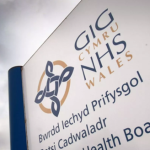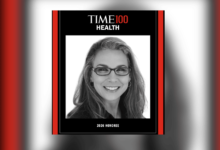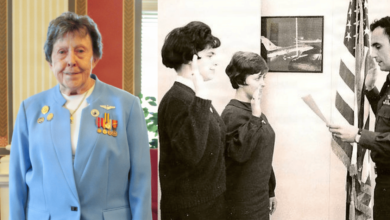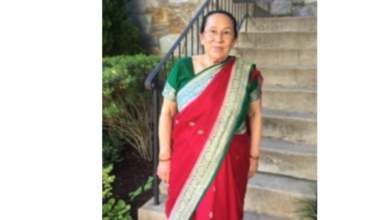NHS urged to better utilise expertise of diaspora nurses

More needs to be done to recognise the contributions of international nurses to the NHS and facilitate them to give back to their countries of origin, researchers have urged.
The Tropical Health and Education Trust (THET) published a new report about what diaspora healthcare staff bring to the NHS, and the projects they have been running to improve health in their home countries.
“Diaspora health workers are diplomats who move with ease between health systems, learning as they go”
Ben Simms
The report published the results of a survey of 685 diaspora healthcare workers from 70 countries of heritage in England and Wales, asking them about their experiences and to talk about their connections with health systems back home.
Of the respondents, 74% identified positive aspects of their practice in the NHS that they attributed to their overseas experience.
Respondents highlighted resourcefulness gained from familiarity with a “more resource-constrained setting”, a greater awareness of the cultural needs of Black and minority ethnic patients and a greater appreciation for the NHS.
One survey respondent said: “Culturally, in lots of Black and minority ethnic families, there’s a stigma to mental health.
“There is also distrust for services… Being Black, however, I think there is a way that my identity and personality work to help access and understand some of those barriers and some of that guardedness, where it comes from.”
However, 16.5% of the respondents said they felt disadvantaged by being an overseas-trained worker due to being unfamiliar with the UK healthcare system or finding it hard to adjust to living in a new culture.
Others told the survey they felt their expertise or skills had been underutilised, and that they felt less likely or able to progress within the health service, particularly beyond Agenda for Change band 7.
Professor Raman Bedi, an advisor for THET, said the figures showed the need to “amplify” the voice of diaspora healthcare workers.
He said: “There are huge benefits to understanding different healthcare systems. I met with one Ugandan midwife recently who explained how she brought in different techniques – used in Uganda – useful for mothers in the UK, such as the way they use blankets and mattresses, etc.”
Professor Bedi said changing the perception of internationally trained healthcare staff, to show they are experts with something to add, was crucial.
He continued: “There are things they can transfer here, and things they can then take back.”
As well as what internationally trained healthcare workers can bring to the UK system, THET shone a light on the work they do in their countries of origin with experience in the NHS.
Of the surveyed healthcare staff, 35% said they were involved in improving health in their countries of heritage.
It pointed to case studies where healthcare workers had done this on their own initiative.
“There are things they can transfer here, and things they can then take back”
Raman Bedi
One such case was Ugandan-trained nurse Primrose Magala, a senior ophthalmology nurse at Moorfields Eye Hospital NHS Foundation Trust.
Ms Magala founded Eye Health Africa, an exchange programme which linked up UK trusts with hospitals in Uganda.
As part of this project, Lubaga Hospital, Uganda, hosted staff from Moorfields who saw more than 2,000 patients in one day and helped train staff.
The exchange programme which Ms Magala headed, in total, trained 50 ophthalmologists in Uganda since its founding in 2017.
The report also pointed to the Betsi-Kenya Health Link, which saw medical staff at Betsi Cadwaladr University Health Board and Busia County in Western Kenya linked up to help with reducing Covid-19 prevalence in the Kenyan region.
This project was started by Janerose Buyiekha, a member of Betsi Cadwaladr’s corporate team and a member of the Kenyan diaspora in Wales.

Betsi Cadwaladr University Health Board
THET’s report highlighted how most of these diaspora-led projects are done using their own free time, effort and sometimes significant amounts of their money.
Professor Bedi said projects such as Ms Magala’s should be supported by the health service and government more formally.
“10 countries do the majority of international recruitment, of which the UK one,” he said.
“In 2025, the World Health Organization will be looking at the code of practice of international recruitment.
“I think we have a great story to tell in that context about international recruitment about how the UK manages, supports and encourages our internationally educated health workers.
“In a way that is not always represented in the other countries that are engaging in international recruitment, [the THET report] puts the UK in a unique position to show our leadership in international recruitment and how we support other health systems.”
The report called for the UK Government to commit 0.7% of its gross national income on ‘official development assistance’, as per a target set by the United Nations.
In addition, it recommended that the NHS in England and Wales set up more formal structures to facilitate diaspora healthcare workers undertaking development projects in their countries of origin and for more recognition of their contributions.
Professor Bedi added: “We need to structure the contribution that the people make overseas in a more systematic way and that needs a combination of [support from] the Foreign, Commonwealth and Development Office and Department of Health and Social Care.
“All these need to be coordinated so it’ll become easier for people to contribute and also the impact will be better.”
THET also reiterated calls to better support the diaspora community in UK healthcare.
In particular, it praised the work done by international nursing and midwifery organisations to improve pastoral support for internationally educated staff in the UK.
THET chief executive Benn Simms added: “Diaspora health workers are diplomats who move with ease between health systems, learning as they go.
“We must listen to their voices as we seek to improve health for everyone, everywhere – the centrepiece of THET’s mission as a UK charity working internationally.
“It is our belief that the UK does not do enough to celebrate this knowledge or acknowledge how much we gain from the presence of the experts in our midst.
“We must also realise the responsibility this places on us as a country to support the work of building health systems in countries of heritage.”






